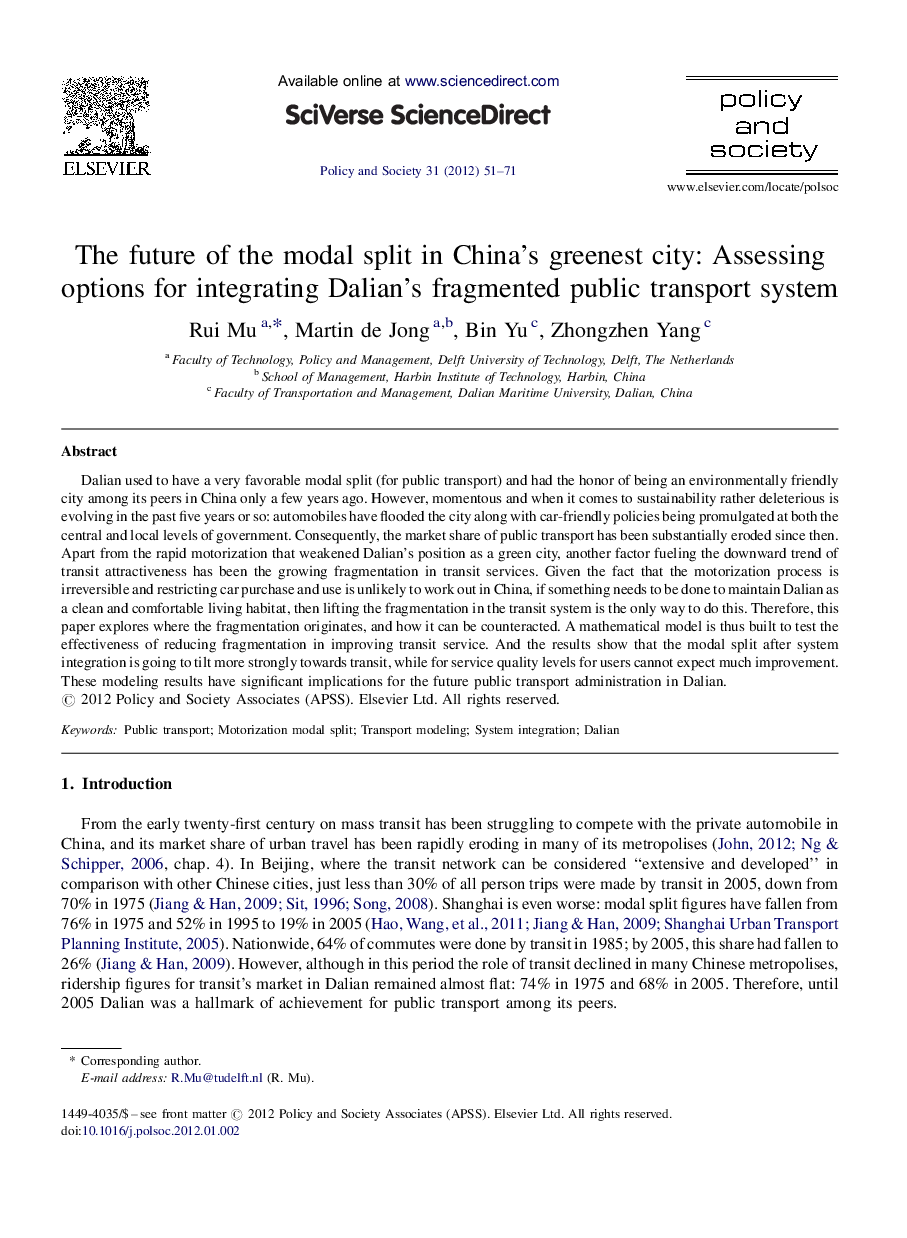| Article ID | Journal | Published Year | Pages | File Type |
|---|---|---|---|---|
| 1061596 | Policy and Society | 2012 | 21 Pages |
Dalian used to have a very favorable modal split (for public transport) and had the honor of being an environmentally friendly city among its peers in China only a few years ago. However, momentous and when it comes to sustainability rather deleterious is evolving in the past five years or so: automobiles have flooded the city along with car-friendly policies being promulgated at both the central and local levels of government. Consequently, the market share of public transport has been substantially eroded since then. Apart from the rapid motorization that weakened Dalian's position as a green city, another factor fueling the downward trend of transit attractiveness has been the growing fragmentation in transit services. Given the fact that the motorization process is irreversible and restricting car purchase and use is unlikely to work out in China, if something needs to be done to maintain Dalian as a clean and comfortable living habitat, then lifting the fragmentation in the transit system is the only way to do this. Therefore, this paper explores where the fragmentation originates, and how it can be counteracted. A mathematical model is thus built to test the effectiveness of reducing fragmentation in improving transit service. And the results show that the modal split after system integration is going to tilt more strongly towards transit, while for service quality levels for users cannot expect much improvement. These modeling results have significant implications for the future public transport administration in Dalian.
